Why your business needs FinOps
If your business is using the cloud—and let’s face it, most are these days—you’ve probably felt the sting of an unexpectedly high bill. Maybe you've wondered where all that spend is going, or who's responsible for keeping things in check.
That’s where FinOps comes in.
What is FinOps?
FinOps (short for Financial Operations) isn’t just another buzzword. It’s a practical framework for cloud cost management that brings finance, tech, and business teams together.
Instead of playing the blame game when budgets blow out, FinOps tools and solutions provide visibility, accountability, and shared responsibility. The result? Businesses can track costs in real time and make informed decisions.
Think of it like DevOps—but for money.
Why should your business care about FinOps?
Cloud spending can be a bit like a leaky tap—slow at first, then suddenly flooding your budget. FinOps solutions help you stop waste before it spirals.
Here’s how adopting FinOps can help:
1. Real-time visibility into cloud costs
Instead of waiting for end‑of‑month reports, FinOps tools give your teams live insight into what’s being spent—and where. It’s like switching on the lights in a dark room. Suddenly, everything’s clearer, and you can see the leak before it damages your budget.
Less “we’ll fix it next month,” more “let’s sort this today.”
2. It gets everyone speaking the same language
Finance teams care about budgets. Engineers care about uptime and speed. FinOps practices bridge the gap, so decisions balance both goals: technical performance and financial accountability.
No more confusion of conflict. Just better collaboration.
3. It puts teams in control of their own costs
FinOps isn’t about locking things down—it’s about giving teams ownership. When people see the impact of their decisions, they make smarter choices.
Cost awareness leads to cost control.
4. You save money—without slowing things down
Cutting costs typically means asking people to “do less.” With FinOps solutions, it’s about doing just as much—just more efficiently. Resizing unused resources, turning things off after hours, or leveraging smarter pricing models all support optimisation.
For Azure customers, this could mean taking full advantage of Reserved Instances, Spot pricing, or hybrid licensing through FinOps in Azure.
Efficiency, not restriction.
5. You scale without losing track
As your cloud estate grows across multiple regions or platforms, complexity grows too. FinOps tools provide a consistent framework so scaling doesn’t lead to chaos.
Grow with confidence, not chaos.
--
Where Ultima Fits Into Your FinOps Journey
Cloud is powerful, but without the right cost guardrails, spend quickly gets out of control. FinOps isn’t about cutting corners — it’s about maximising value from every cloud pound or dollar.
Ultima has helped businesses of all shapes and sizes:
- From quick discovery assessments with FinOps tools.
- To full FinOps solutions that align Azure or multi‑cloud usage with financial strategy.
Whether you’re just starting out or maturing your approach, we’ll meet you where you are.
--
Learn more about FinOps
We've enlisted experts across Ultima and our partner Vantage to join me, Dom Melly (Group Head of Cloud at Ultima), to discuss FinOps across a series of webinars.
You can catch up and sign up below:
- FinOps Applied: Inform - Mastering FinOps for Strategic Cost Allocation with Jamie Beaumont (CFO at Ultima) Originally recorded 13th May 2025
- FinOps Applied: Optimise – Equipping C-suite with Cloud Strategies for Cost-Efficiency with Chris Kirk (Head of Data and AI at Ultima) Originally recorded 20th May 2025 at 11am
- FinOps Applied: Operate – Unlocking Continuous Success through FinOps Best Practices with Joe Henderson (Head of Partnerships at Vantage) Originally recorded 10th June at 2pm
Stop reacting to your cloud bill. Start taking control with FinOps solutions designed to bring visibility, accountability, and smarter decision‑making across Azure and multi‑cloud.
Contact Ultima today to explore how FinOps can transform your cloud spending.
--
FinOps: Frequently Asked Questions
FinOps is short for Financial Operations.
It’s a framework and set of practices that bring together finance, engineering, and business teams to manage cloud costs more effectively. With FinOps, organisations gain visibility, accountability, and collaboration when managing cloud spend.
FinOps tools are specialised platforms or features that help businesses track, analyse, and optimise their cloud costs.
These tools provide real‑time dashboards, automation for cost allocation, and actionable insights so teams can make smarter decisions about Azure and multi‑cloud usage.
FinOps solutions provide a structured approach to cost management, enabling organisations to align financial strategy with cloud adoption.
They highlight inefficiencies, recommend optimisation actions (like rightsizing or reserved instances), and ensure teams are accountable for spend. This reduces costs without slowing innovation.
Microsoft Azure includes powerful cost management features, but without a FinOps framework they can be under‑utilised. FinOps helps businesses get more from Azure by applying governance, using features like Azure Reserved Instances, Spot VMs, and hybrid licensing while ensuring costs remain predictable.
FinOps is short for Financial Operations.
It’s a framework and set of practices that bring together finance, engineering, and business teams to manage cloud costs more effectively. With FinOps, organisations gain visibility, accountability, and collaboration when managing cloud spend.
FinOps tools are specialised platforms or features that help businesses track, analyse, and optimise their cloud costs.
These tools provide real‑time dashboards, automation for cost allocation, and actionable insights so teams can make smarter decisions about Azure and multi‑cloud usage.
FinOps solutions provide a structured approach to cost management, enabling organisations to align financial strategy with cloud adoption.
They highlight inefficiencies, recommend optimisation actions (like rightsizing or reserved instances), and ensure teams are accountable for spend. This reduces costs without slowing innovation.
Microsoft Azure includes powerful cost management features, but without a FinOps framework they can be under‑utilised. FinOps helps businesses get more from Azure by applying governance, using features like Azure Reserved Instances, Spot VMs, and hybrid licensing while ensuring costs remain predictable.






